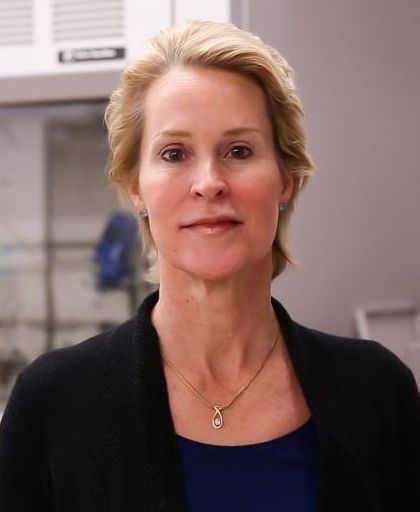ICB Bioengineer Frances Arnold is inducted into the National Inventors Hall of Fame

Frances Arnold, member of the ICB’s distinguished Caltech faculty, was inducted into the National Inventors Hall of Fame (NIHF) on May 21, 2014, for her pioneering work in bioengineering and directed evolution. She joins some of the nation’s esteemed top inventors such as Alexander Graham Bell, Orville and Wilbur Wright, Thomas Edison, Eli Whitney, and Henry Ford. “It’s thrilling,” Arnold said. “Look at the list of inventors…I’m honored.”
According to the NIHF, inductees are inventors who hold a United States patent and "who have made extraordinary contributions to their respective fields, and in many cases, changed the world forever." A selection committee made up of representatives from science, technology, and patent organizations makes recommendations on who should be inducted, and the NIHF board ratifies each year's class of inventors.
Dickinson Professor of Chemical Engineering, Bioengineering, and Biochemistry at Caltech Arnold is a pioneer in the development of sustainable biofuels and directed evolution—a technique that uses evolution to engineer biological processes. Her directed evolution bioengineering methods have been adopted by hundreds of laboratories around the world. Her technique utilizes evolutionary processes to engineer novel biological results, and has broad applications for alternative energy, medicine, “green” manufacturing from agriculture, laundry detergents and renewable soda bottles to toxicology and sustainable biofuels. Arnold is a proponent of using her groundbreaking research to provide beneficial, real-world solutions to major global challenges.
ICB and Caltech colleague David Tirrell, Professor of Chemistry and Chemical Engineering at Caltech, has known Arnold for 25 years. “Her work has changed the way people do bioengineering, very broadly,” Tirrell said. “Now it extends to almost every area of biotechnology.
From genetic engineering precursors, in which scientists learned to manipulate proteins, cells, and simple organisms, Arnold developed the technique of directed evolution, which starts with thousands of randomly mutated proteins; picks out those that possess a desired trait; and then breeds those mutants to produce the desired outcome, until they solve problems that nature never has. To simplify: “I breed molecules like you breed cats and dogs,” Arnold said.
Arnold is a co-inventor on more than 300 U.S. patents, and has acted as science advisor and co-founder for several technology transfer spin-off companies, including Gevo.
Arnold is the recipient of innumerable awards, including the National Medal of Technology and Innovation—the highest honor bestowed by the United States government upon scientists, engineers, and inventors; and the distinguished Draper Prize in 2011 (she was the first woman to receive this award). She is also one of eight scientists, and the only woman to hold the rare distinction of having been elected to all three branches of the National Academies—the National Academy of Engineering (2000), the Institute of Medicine (2004), and the National Academy of Sciences.
